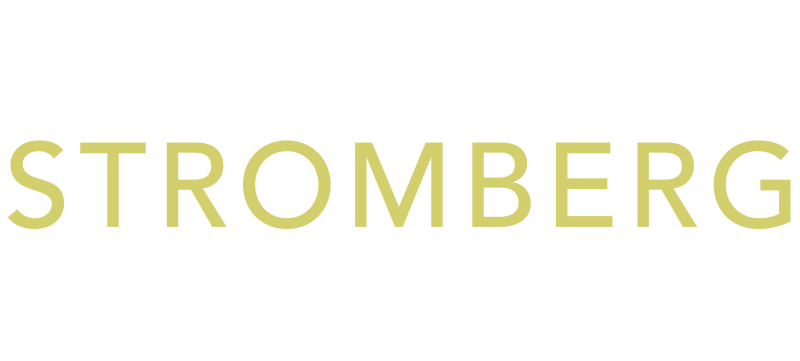As an unsecured creditor, you are often placed in a difficult position when it comes to debtors who cannot afford to pay their bills. You can seek judgment, but you are often taken in line with other unsecured creditors who do not expect to receive on their debts as well. Furthermore, you are always subject to the risk that the debtor will simply file for bankruptcy and wipe the slate clean.
Where the debtor does not make the empty threat, and actually assigns into bankruptcy, the unsecured creditor is often left to take pennies on the dollar. However, section 178 of the Bankruptcy and Insolvency Act provides a laundry list of reasons why a debt may survive the bankruptcy. While there are ten separate situations in which the debt may survive bankruptcy, from a creditor’s perspective the most common is that the debt was incurred as a result of fraud or fraudulent misrepresentation.
In Saskatchewan, the most common allegation of fraud occurs when a debtor applies for financing and knowingly misleads the creditor in filling out the disclosure forms. The failure to include certain debts, or misleading the creditor about the value of one’s assets, may result in a finding of fraud. In other examples, the creditor may allege that the debtor fraudulently conveyed his or her assets on the eve of bankruptcy and therefore, those assets must be returned.
Where a creditor suspects this to be the case, and the debtor has filed for bankruptcy, the creditor is left with two, non-exclusive, options:
- The creditor may oppose the discharge of the debtor from bankruptcy on the basis of fraud. The fraud claim may then proceed as part of the bankruptcy matter and affect the conditions or suspension of the discharge. Typically, there must be more than a mere allegation of fraud before the Registrar in Bankruptcy will intervene; and/or
- The creditor may commence a completely independent action on the basis of fraud against the debtor. This may be started before or after the bankruptcy proceeding.
Where option two is selected, this brings into play important considerations regarding how a limitations period may be effected. An assignment into bankruptcy automatically stays all proceedings against the debtor and in Saskatchewan, The Limitations Act provides for a two-year window from the date a claim was discovered to commence an action.
Luckily for creditors, section 25 of The Limitations Act provides that the limitations period is stayed during the course of the bankruptcy proceeding. The two-year calculation stops on the date of assignment and restarts at the date of discharge. This provides creditors with the ability to see how the bankruptcy plays out, determine the amount of their deficit and make an educated decision on whether they should run the risk of attempting to prove fraud and collect.
Interestingly enough, the Ontario Superior Court was recently given the opportunity to weigh in on a unique interplay between limitations periods and the Bankruptcy and Insolvency Act. In Re Eyton, 2021 ONSC 3646, Mr. Eyton was assigned to bankruptcy, listing all of his creditors in his initial assignment documents. Notably present was a debt owing to Forty-One Peter Street Inc. from 2001, nearly 18 years prior to his assignment. While some periodic payments were made and Mr. Eyton made plenty of empty promises to Forty-One Peter Street Inc., it was relatively clear that the Forty-One Peter Street Inc. debt was limitations barred had there not been an assignment into bankruptcy.
Notwithstanding that, upon being listed on the statement of creditors, Forty-One Peter Street Inc. filed a proof of claim for $400,000. The Trustee disallowed the claim by Forty-One Peter Street Inc., and, for obvious reasons, the other creditors also objected to its inclusion. The Court concluded that, notwithstanding the fact the bankrupt conceded the debt, given the debt was statute-barred it was not an enforceable debt and Forty-One Peter Street was not entitled to share with the other unsecured creditors.
It is interesting to note that the Court concluded that just because a bankrupt lists and concedes a claim, it does not always follow that the creditor is entitled to a share of the Estate. The creditor must still be able to prove their claim in bankruptcy and a limitations period would prevent the creditor from doing so. An assignment in bankruptcy cannot operate to save a creditor and revive an otherwise unenforceable claim.
The above serves to reinforce that, while in certain circumstances the Bankruptcy and Insolvency Act can provide creditors with additional time, creditors must be ever vigilant of impending limitations periods and be careful not be mislead by creditor’s empty promises and threats. If you are of the opinion the two-year period is approaching, it is best to issue the claim out of an abundance of caution and plan accordingly thereafter.
Every determination of reasonableness will, of course, always be fact-specific.
A side question not raised in Bryant Estate, was whether a party in the position of Franklin’s estate could also simply rely on the inherent jurisdiction of the Court of Queen’s Bench to secure an order for an accounting. That specific question will therefore have to await the guidance of a future court.
If you are interested in bankruptcy and insolvency, commercial litigation, debt collection, and related matters, Robertson Stromberg LLP would be pleased to assist. For more information, please contact Travis K. Kusch at 306.933.1373 or email t.kusch@rslaw.com.
Related Articles
Saskatchewan Estate Litigation Update: Mang v. Hofer, 2025 CarswellSask 85, 2025 SKKB 21
The recent Saskatchewan King’s Bench decision in Mang v. Hofer offers a reminder of the threshold criteria that an applicant must meet in order to become the administrator of an intestate estate. For context, when a deceased dies without a will their estate falls into...
Saskatchewan Estate Litigation Update: Reader Estate v. Reader, 2024 CarswellSask 522, 2024 SKKB 212
The recent Saskatchewan King’s Bench decision in Reader Estate v. Reader demonstrated the Court’s power to rectify a Will where a drafting error threatened to defeat the intention of the testator.Background: The factual background in Reader Estate included the below:...
Join Tiffany Paulsen, K.C. for a Replay of Underutilized Off-Ramps on the Highway to Family Trial
From the November 21 Law Society of Saskatchewan seminar, Getting It Done: Resolving Family Proceedings on a Final Basis without Going to Trial, Justice G.V. Goebel and Tiffany Paulsen, K.C. discuss alternative legal processes to trial: uncontested applications,...
Join Curtis Clavelle at the CBA Sexual and Gender Diversity Alliance Section Meeting on April 2
Curtis will be presenting on family building options available to 2SLGBTQIA+ individuals, together with relevant legislation, requirements and pitfalls of drafting assisted reproduction agreements, and legal treatment of multi-parent families. To register, click here....
Robertson Stromberg Lawyers Recognized in the 2025 Edition of the Canadian Legal Lexpert® Directory
Congratulations to Misty S. Alexandre, M. Kim Anderson, K.C., Christopher J.H. Donald, K.C., Jared D. Epp, Tiffany M. Paulsen, K.C., Jennifer D. Pereira, K.C., Leslie W. Prosser, K.C., and Sean M. Sinclair, who have been recognized by their peers in the Canadian Legal Lexpert Directory for 2023.
Join Misty Alexandre at the Society of Construction Law North America joint panel discussion
Join Misty Alexandre at the Society of Construction Law North America (British Columbia & Yukon, and Prairies and Northern Territories Chapters) joint panel discussion on recent case law developments on liens. The panel takes place on March 26, 2025 at 1:00pm to...
Jennifer Pereira, K.C. appointed to Federal Judicial Advisory Committee
Congratulations to Jennifer Pereira, K.C. on her appointment to the Federal Judicial Advisory Committee. The committee is responsible for assessing the qualifications of lawyers who apply to be justices of the Court of King’s Bench in Saskatchewan. For more...
Misty Alexandre joins board of Saskatoon Industry Education Council
Misty Alexandre has joined the board of the Saskatoon Industry Education Council (SIEC). The SIEC serves as a critical connection between Saskatchewan’s industry leaders and the next generation of talent, fostering collaboration among businesses, K-12 schools, and...
Jared Epp Presents at Canadian Bar Association (Sask) Mid-Winter Meeting
Join Jared Epp at the Canadian Bar Association (Sask) Mid-Winter Meeting Jared Epp will participate in a panel with respect to procurement. The session, entitled Procurement: Best Practices and Common Pitfalls provides a comprehensive overview of procurement...
Scott Waters, K.C. Presents at Canadian Bar Association (Sask) Mid-Winter Meeting
Join Scott Waters, K.C. at the Canadian Bar Association (Sask) Mid-Winter Meeting Scott Waters K.C. will participate in a panel about commercial real estate transactions. Entitled, Anatomy of Commercial Real Estate: Current Trends and Issues, this session examines the...

